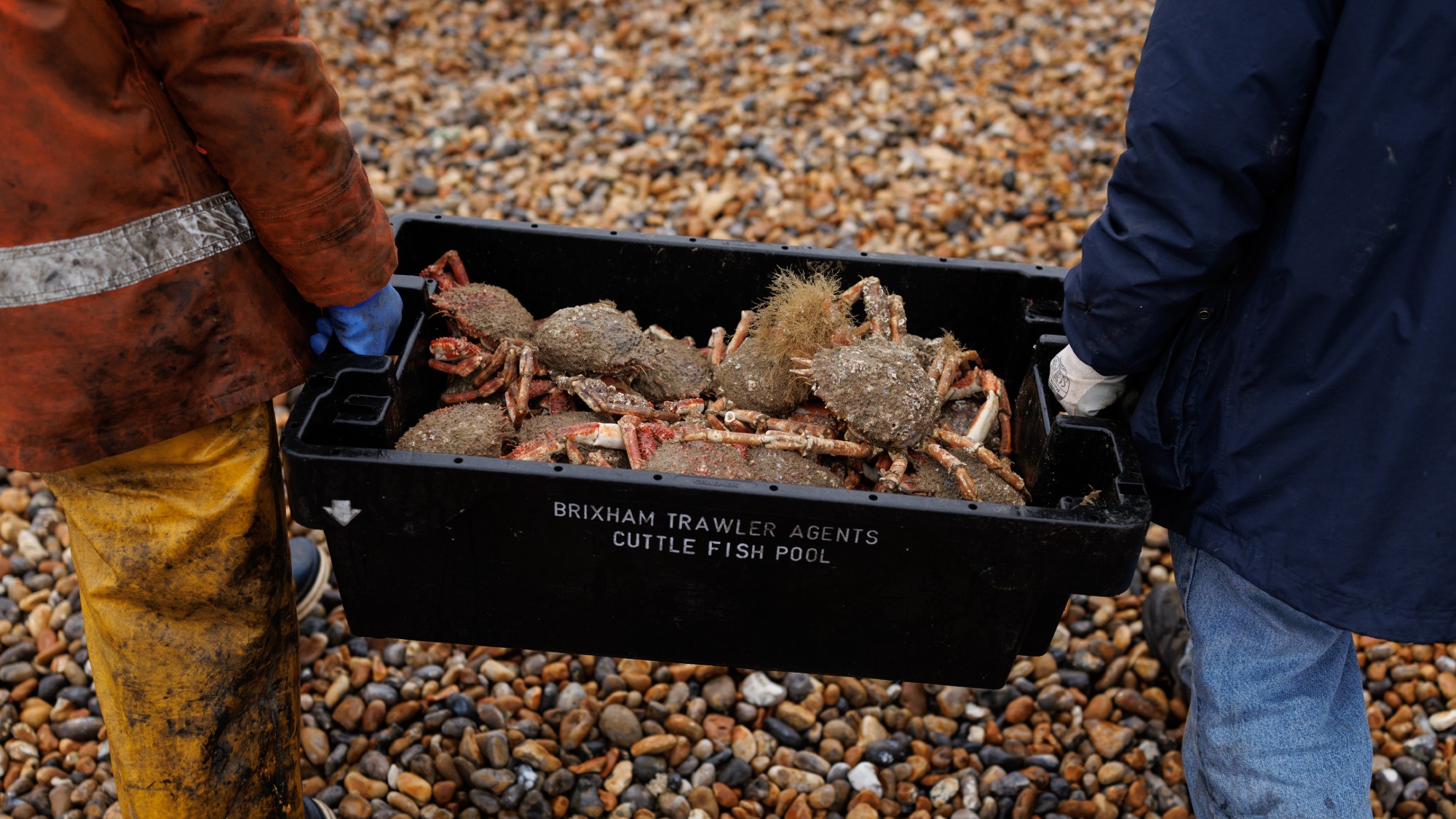Brexit 'reset' deal: how will it work?
Keir Stamer says the deal is a 'win-win', but he faces claims that he has 'surrendered' to Brussels on fishing rights

A free daily email with the biggest news stories of the day – and the best features from TheWeek.com
You are now subscribed
Your newsletter sign-up was successful
Keir Starmer hailed a "new era" in relations with Europe this week after the UK and Brussels agreed a post-Brexit "reset". Under the deal, announced at a summit in London with EU chief Ursula von der Leyen, the EU will lift checks on food produce crossing the Channel in return for the UK committing to abide by EU food standards.
As part of a new security pact, British defence firms will be able to participate in joint EU procurement programmes. Britons will be able to use border e-gates at more EU airports. The two sides also agreed, in principle, to establish a new youth exchange scheme and work towards a joint electricity market.
The PM said the deal was a "win-win" that would deliver cheaper food and electricity bills and boost the economy by £9 billion a year by 2040. But he faced claims that he had "surrendered" to Brussels by agreeing to let EU fleets enjoy their current level of access to British waters until 2038. Tory leader Kemi Badenoch called the deal a "total sell-out".
The Week
Escape your echo chamber. Get the facts behind the news, plus analysis from multiple perspectives.

Sign up for The Week's Free Newsletters
From our morning news briefing to a weekly Good News Newsletter, get the best of The Week delivered directly to your inbox.
From our morning news briefing to a weekly Good News Newsletter, get the best of The Week delivered directly to your inbox.
What a "stitch-up", said The Sun. Starmer has betrayed our fishing industry, brought part of our economy back under EU jurisdiction, and opened our borders to millions of workers, while agreeing to pay for the privilege. And all for what? The lifting of "vindictive checks" on our food exports, some possible contracts for our arms industry and the promise of shorter passport queues. The fisheries deal is particularly egregious, said The Daily Telegraph. The UK was due to regain full control of its waters in 2026. But it has now agreed to give EU boats access for 12 more years, more than double its original offer.
Ignore the talk of Brexit betrayal, said The Economist. This deal doesn't take us back into the single market or customs union. It just removes some of the trade frictions created by Brexit while sensibly opening the way to more defence cooperation. Starmer may have conceded more than he wished on fisheries, but given that we export around 70% of our catch to the EU, the deal will also bring benefits to our fishing industry. "As for being a rule-taker, that is merely the price that countries wishing to sell into the EU market must pay."
A free daily email with the biggest news stories of the day – and the best features from TheWeek.com
-
 How the FCC’s ‘equal time’ rule works
How the FCC’s ‘equal time’ rule worksIn the Spotlight The law is at the heart of the Colbert-CBS conflict
-
 What is the endgame in the DHS shutdown?
What is the endgame in the DHS shutdown?Today’s Big Question Democrats want to rein in ICE’s immigration crackdown
-
 ‘Poor time management isn’t just an inconvenience’
‘Poor time management isn’t just an inconvenience’Instant Opinion Opinion, comment and editorials of the day
-
 Democrats push for ICE accountability
Democrats push for ICE accountabilityFeature U.S. citizens shot and violently detained by immigration agents testify at Capitol Hill hearing
-
 Fulton County: A dress rehearsal for election theft?
Fulton County: A dress rehearsal for election theft?Feature Director of National Intelligence Tulsi Gabbard is Trump's de facto ‘voter fraud’ czar
-
 ‘Melania’: A film about nothing
‘Melania’: A film about nothingFeature Not telling all
-
 Vietnam’s ‘balancing act’ with the US, China and Europe
Vietnam’s ‘balancing act’ with the US, China and EuropeIn the Spotlight Despite decades of ‘steadily improving relations’, Hanoi is still ‘deeply suspicious’ of the US as it tries to ‘diversify’ its options
-
 The Mandelson files: Labour Svengali’s parting gift to Starmer
The Mandelson files: Labour Svengali’s parting gift to StarmerThe Explainer Texts and emails about Mandelson’s appointment as US ambassador could fuel biggest political scandal ‘for a generation’
-
 Greenland: The lasting damage of Trump’s tantrum
Greenland: The lasting damage of Trump’s tantrumFeature His desire for Greenland has seemingly faded away
-
 Minneapolis: The power of a boy’s photo
Minneapolis: The power of a boy’s photoFeature An image of Liam Conejo Ramos being detained lit up social media
-
 The price of forgiveness
The price of forgivenessFeature Trump’s unprecedented use of pardons has turned clemency into a big business.